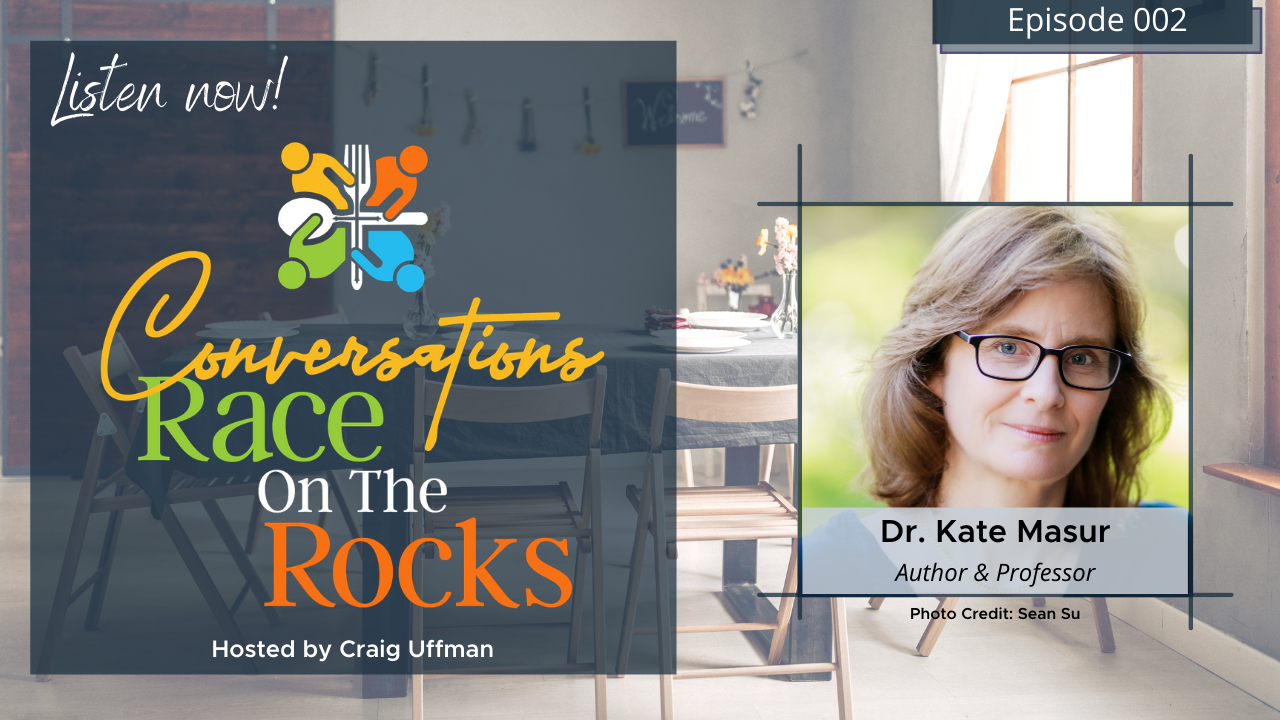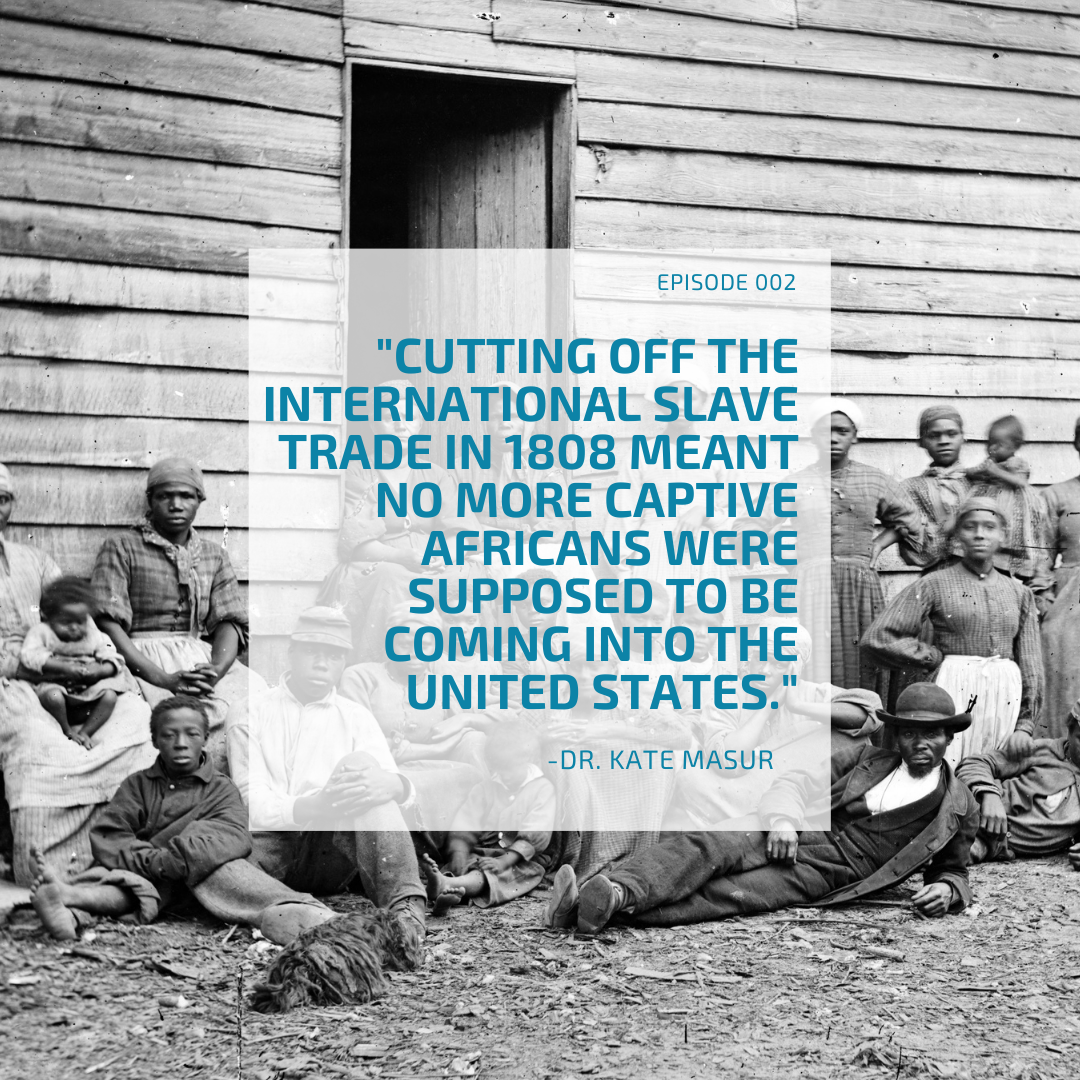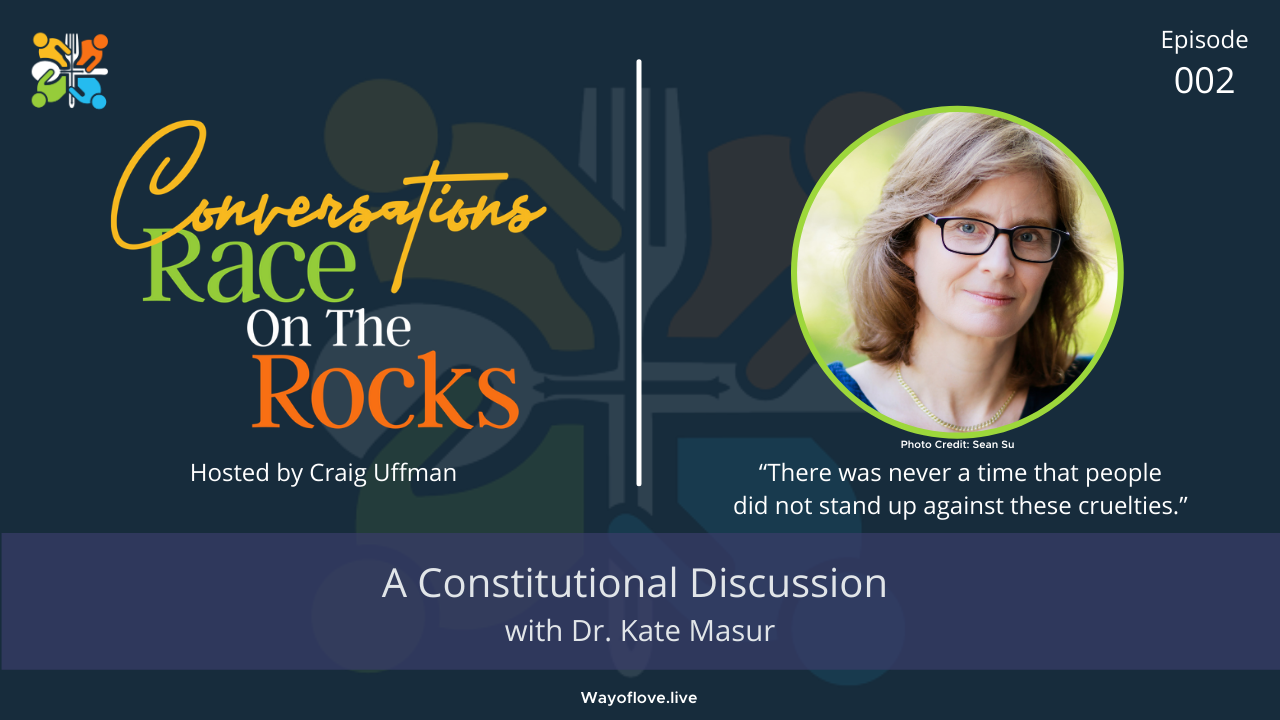Welcome to Conversations: Race on the Rocks with your host, Craig Uffman. Today, our focus is on our genesis, our birth as a nation, the period in which We the People determined -- to quote LBJ when he called Congress to approve our Voting Rights Act -- that We the People would strive to “bring full and equal and exact justice to all of our people.” This episode’s guest, Dr. Kate Masur, is here to help us remember some of the most important stories that shaped the racial landscape and intentions with which we still wrestle with today.
Listen now on Spotify, Apple Podcasts, Google Podcasts, Stitcher and more!

Kate is a Professor at Northwestern University specializing in the United States of the 19th Century. She has a primary focus in how Americans grapple with questions of race and equality after the abolition of slavery in both the north and the south. Kate is the author of Until Justice Be Done: America's First Civil Rights Movement From Revolution to Reconstruction, which will be available in March, along with many books and articles that examine the law of politics and everyday life in US History.
Listen, as Kate explains how the feeling around slavery shaped the colonies differently, causing tensions around the tobacco industry, and how the southern colonies were more dependent on slave labor than the northern colonies. Kate discusses why we could not abolish slavery by the time they wrote the US Constitution, though the Declaration of Independence states all men are created equal.
Kate discusses the debates over slavery at the Constitutional Convention, the 3/5ths compromise, the move west, and the wars fought against Native Americans for their land. Kate speaks about the Louisiana Purchase, which led to a more sophisticated domestic slave trade, and how enslaved people were transported into the western United States as labor to help develop those territories economically.

Kate also shares that during this cruel and violent racially oppressive time, there were always people who spoke out against the injustice. For example, one newspaper, called the Genius of Universal Emancipation, and others, were grounds of hope that became powerful voices before the Civil War.
"There was never a time that people did not stand up against these cruelties." -Dr. Kate Masur
Questions for Clergy and Group Leaders
- How did our importation from Caribbean colonies of the concepts of racialized slavery shape the New England, mid-Atlantic, and Southern colonies differently? How did those worldview differences lead to tensions between the colonies as we tried to discover and embrace a shared national identity by 1776?
- Why did our Enlightenment ideals of 1776 not lead to the abolition of slavery in 1789?
- What is federalism? How did that constitutional commitment impact the politics of slavery through our first fifty years as a nation?
- What practical realities led us to the creation of interstate slave markets by 1809? How did the enslavers and their supporters justify continuing slavery? What were the dissenting views and why did they lose the debate?
In this episode
[02:10] Welcome to the show, Kate!
[03:42] Kate shares why August 1619 is a critical time we should remember.
[07:12] Listen as Kate explains how the concept that slavery was okay shaped the New England, Mid-Atlantic, and southern colonies differently.
[09:56] Europeans used enslaved laborers in large-scale plantation agriculture.
[12:01] Why were we not able to abolish slavery by the time we got to the US Constitution?
[14:58] Why some people who fought for liberty were completely comfortable suppressing the liberty of other people.
[16:21] Kate speaks about the debates around slavery that were present during the Constitutional Convention.
[18:58] Kate believes that it was a struggle for many enslavers to turn people into property.
[20:08] The Constitution allowed slavery to continue and allowed states to determine the future of slavery.
[23:35] Kate discusses the 3/5th's compromise and what it meant to slave owners and what it meant for America’s political tensions for almost 80 years.
[26:06] Eight of the first twelve Presidents of the United States were slave owners.
[27:54] What difference did it make that the northern states emerge as free territories?
[30:16] When we think about race and our nation's history, we must also think about the wars fought against Native Americans.
[32:31] Craig believes it's important for us to think about the external forces that shaped our pursuit of racial justice.
[33:52] Kate speaks about the Louisiana Purchase and how that accelerated the expansion of slavery.
[37:00] Craig shares about Fletcher VS. Peck, which established the principle that a contract is inviolable and that property is absolute, and how that impacted enslaved peoples.
[39:58] What transpired in 1810 that set us up for a more sophisticated domestic slave market?
[42:11] Kate discusses how enslaved people were transported into the southwestern territories to be the labor in developing those places economically.
[44:31] Kate points out that during this violent and racially oppressive time in the United States there were people who spoke out about it.
[47:21] Can you remind us of how we tried to reduce these tensions?
[50:30] Kate discusses the significance of the Missouri Compromise.
[53:13] Kate discusses the concept of federalism and how it limited federal power to constrain the states in the expansion of slavery and the treatment of enslaved peoples.
[56:13] Kate shares the grounds of hope, already in place, even during a tragic and cruel time in the United States.
[59:11] Kate speaks about the newspaper called the Genius of Universal Emancipation.
[1:01:03] Thank you for listening to the show!
...
Listen to the next episode as Kate and Craig talk more about formative moments before the Civil War that now help us understand how we got to where we are today in terms of racial justice. Plus, more on the grounds of hope for our nation.
Links and Resources
Connect with Craig:
Connect with Kate:
Book: Until Justice Be Done: America's First Civil Rights Movement From Revolution to Reconstruction

